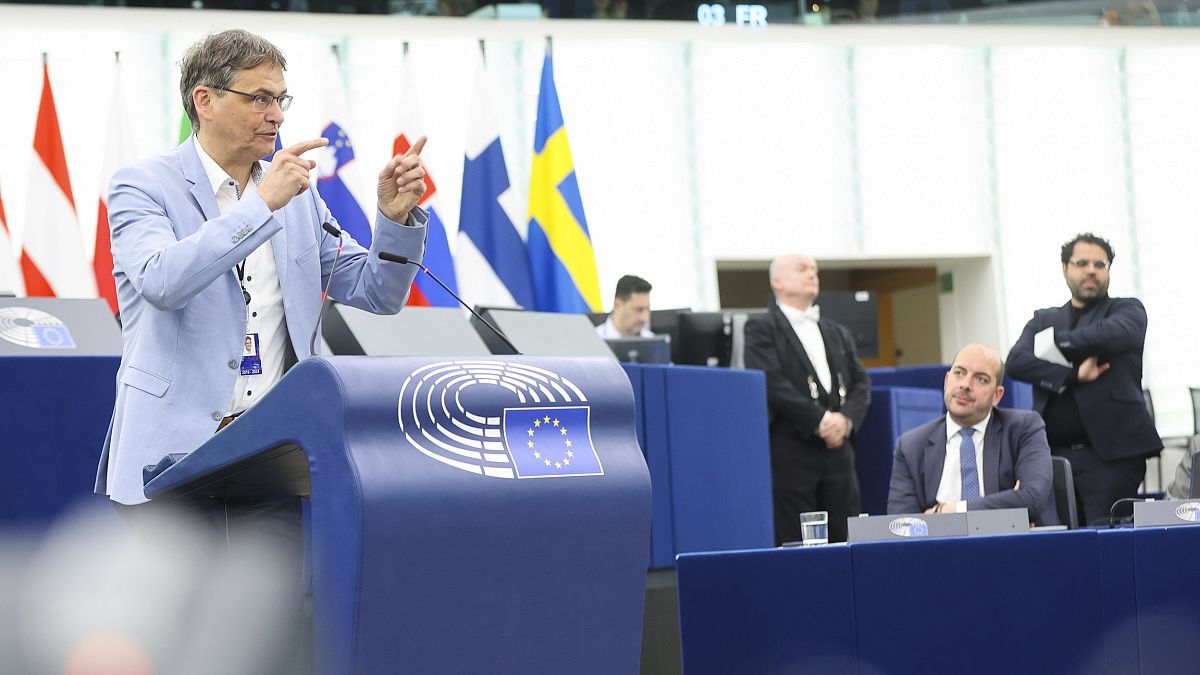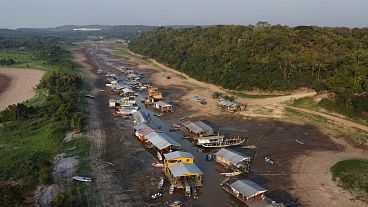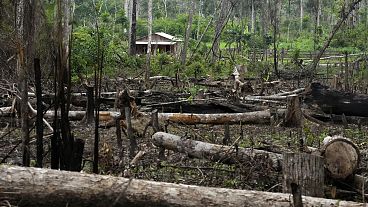The head of environment policy for the centre-right European People's Party, which emerged victorious in recent EU elections, has called for a two-year delay to market restrictions aimed at discouraging deforestation outside the EU.
A leading lawmaker in the European People’s Party has said he is “confident” the EU executive will move to postpone an incoming ban on marketing goods that are linked to deforestation, following a warning last month from the Biden administration in Washington, and the centre-right group has other Green Deal legislation in its sights.
Peter Liese, an MEP since 1994 and freshly re-elected, told Euronews today that recent contact with officials “at all levels” in the European Commission had shown him “everybody is aware that we have a problem that cannot be solved without postponement”. As to the length of the delay, he added: “I would consider two years a reasonable time."
The German lawmaker had issued a statement earlier in the day saying he agreed with the aims of the EU Deforestation Regulation (EUDR) but that the law as agreed in December 2022 by the European Parliament and government negotiators had been “turned into a bureaucratic monster by a majority of Greens, Social Democrats, Leftists and French Liberals”.
It is due to take effect at the end of this year – though kicks in six months later for small businesses. After that, suppliers of palm oil, cattle, soy, coffee, cocoa, timber and rubber, and products like furniture, chocolate and beef, will have to provide documentary proof that their production involved no unsustainable forest clearance before they can market their goods in the EU.
Liese cited international pressure to withdraw or delay the legislation, in particular reports of a letter from senior US trade and agriculture officials in Washington warning Commission vice-president and Green Deal director Maroš Šefčovič of “significant negative economic effects on both producers and consumers on both sides of the Atlantic” when the law kicks in.
The letter, dated 30 May and seen by Euronews, identifies “four critical challenges for US producers to understand and comply” with the new rules: the absence of an information system, a lack of guidance from the EU executive, the failure to designate competent national authorities to police the regime, and the interim classification of all source countries as ‘standard risk’ regardless of their forestry practices.
As EPP coordinator on the parliamentary environment committee, Liese often found himself at odds with the left, liberal and green political factions he identified in his statement, although the large bulk of his centre-right group voted with them in favour of the deforestation law.
His call to delay the EUDR is not yet the official position of the EPP, but it was met with applause at a group meeting on Wednesday (26 June), Liese said. The group reinforced its position as the largest political grouping in the parliament, after criticising numerous aspects of environmental policy during its election campaign.
Liese said there were “many other Green Deal files” where the group wants to see changes, including CO2 emissions standards for cars that amount to a de facto ban on the sale of new petrol and diesel cars from 2035. “For me it is very important to keep the climate targets,” he said. “This is supported by almost everybody in the EPP group, but we want to reopen legislation to make it more technologically neutral, for example CO2 [standards for] cars, but also other legislation.”
In addition to trading partners including Brazil and now the EPP, there have also been moves among governments to revise the law. Under the EU’s legislative procedure, tabling new legislation or amendments to existing laws is the prerogative of the Commission. Any bill would be subject to adoption by both the parliament and Council.
Austrian agriculture minister Norbert Totschnig claimed in March that 20 of his EU peers had agreed the deforestation law would “negatively affect sustainable and small-scale agricultural and forestry practices in the European Union” and supported a call for “urgent action” to exempt the smallest farmers – in addition to delaying implementation.
The Commission declined to comment on Liese’s statement, or on whether there were any ongoing discussions within the EU executive about reopening the file. Last week, responding to reporters when the US letter first came to light, a spokesperson said the executive had been “working hard to ensure all the conditions are met for smooth implementation of the law” while keeping the situation “under constant review”.















